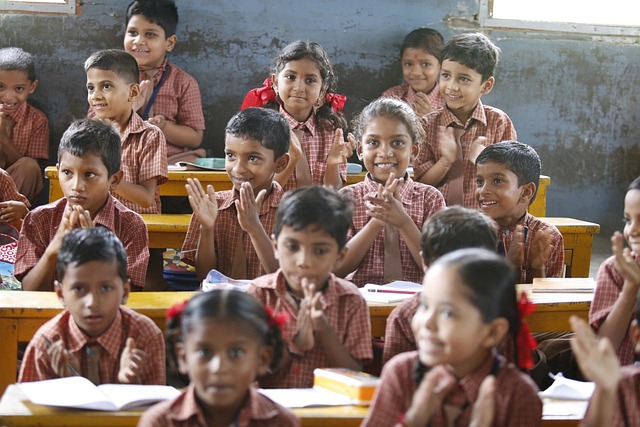In dynamic Karachi, Pakistan's academic institutions are revolutionizing education by integrating practical skills training into curricula. Driven by the modern job market's demand for adaptability, this shift focuses on enhancing problem-solving, critical thinking, and digital literacy. By collaborating with industry experts and offering hands-on experiences, educators prepare students to thrive in the city's complex environment. This strategic approach aims to create well-rounded graduates who can contribute meaningfully to Karachi's development.
In Karachi, as in many urban centers, there’s a growing need to integrate practical skills into academic curricula. This shift aims to prepare students for the realities of the job market and enhance their employability. This article explores this imperative, focusing on identifying key practical skills for incorporation, strategies for effective integration, and the benefits and challenges faced by Karachi’s educational landscape. By delving into these aspects, we aim to highlight innovative approaches that can revolutionize education in Pakistan’s bustling metropolis.
- Understanding the Need for Practical Integration in Karachi's Academic Settings
- Identifying Key Practical Skills for Curriculum Incorporation
- Strategies for Effectively Integrating Practical Training into Academic Programs
- Benefits and Challenges: A Case Study of Karachi's Educational Landscape
Understanding the Need for Practical Integration in Karachi's Academic Settings

In Karachi, a vibrant and diverse metropolis, the academic landscape is undergoing a transformative shift as educators recognize the paramount importance of integrating practical skills into curricula. This realization stems from the evolving demands of the modern job market, where employers seek individuals equipped not just with theoretical knowledge but also with hands-on experience and applicable skills. The city’s academic settings are increasingly acknowledging that traditional education methods may not adequately prepare students for the complexities and challenges of the real world.
Karachi, known for its bustling and dynamic environment, demands a workforce adept at navigating practical scenarios. Integrating skills like problem-solving, critical thinking, and digital literacy into academic curricula ensures that students are equipped to handle the city’s fast-paced nature. By combining theoretical learning with practical applications, educational institutions in Karachi can foster a generation of graduates who are not just knowledgeable but also adaptable and skilled in applying their knowledge effectively. This approach is pivotal in producing well-rounded individuals capable of contributing meaningfully to Karachi’s ever-evolving landscape.
Identifying Key Practical Skills for Curriculum Incorporation

In the vibrant and bustling city of Karachi, the academic landscape is undergoing a transformation as educators recognize the growing importance of integrating practical skills into curricula. This shift is driven by the need to prepare students for the challenges and opportunities of the modern world. Key practical skills, such as problem-solving, critical thinking, and digital literacy, are increasingly recognized as essential components of a well-rounded education. By incorporating these skills into academic subjects, schools in Karachi can ensure that students develop not just theoretical knowledge but also the ability to apply it effectively in real-world scenarios.
Identifying these key practical skills involves a deep understanding of the local job market and industry trends. In Karachi, with its diverse economy ranging from manufacturing and technology to healthcare and services, educators must collaborate with industry experts to determine the most relevant skills. This collaborative approach ensures that curriculum changes are informed by real-world demands, making education more responsive and impactful. As a result, students graduating from Karachi’s academic institutions will be better equipped to navigate complex career paths and contribute positively to their communities.
Strategies for Effectively Integrating Practical Training into Academic Programs

Integrating practical skills training into academic curricula in Karachi requires a strategic approach. One effective strategy is to collaborate with industry partners who can offer real-world experience and insights. By inviting professionals from various sectors, students gain exposure to current market demands and trends, ensuring their education remains relevant. For instance, computer science students can work on projects with local tech startups, allowing them to apply coding skills in a practical setting.
Another successful integration method is incorporating experiential learning opportunities such as workshops, field trips, and simulations. These activities enable students to actively engage with concepts learned in the classroom. In Karachi’s diverse environment, this could include visits to local businesses or community projects where students can practice leadership, communication, and problem-solving skills. Such hands-on experiences not only enhance learning but also prepare students for future career paths, making them more attractive to employers in competitive job markets.
Benefits and Challenges: A Case Study of Karachi's Educational Landscape

In Karachi, Pakistan’s vibrant and bustling metropolis, integrating practical skills into academic curricula is a topic that has garnered significant attention. The city’s educational landscape presents both unique benefits and challenges in this regard. One of the primary advantages is the opportunity for students to gain hands-on experience aligned with real-world applications. Karachi, as a major economic hub, offers a plethora of industries and businesses where academic concepts can be practically demonstrated. Students can intern or engage in vocational training, fostering skills like problem-solving, critical thinking, and adaptability—all crucial for success in the modern job market.
However, navigating this integration is not without its hurdles. The traditional academic focus on theoretical knowledge often takes precedence, leaving limited time and resources for practical implementations. Moreover, ensuring that curriculum changes are inclusive and accessible to all students, especially those from underserved communities, is a complex task. Karachi’s diverse student body brings cultural, socio-economic, and educational backgrounds that require tailored approaches. Despite these challenges, the potential for transformative learning experiences is immense, promising to equip Karachi’s youth with practical skills vital for their personal and professional growth in this dynamic city.
In light of the above discussions, it’s evident that integrating practical skills into academic curricula in Karachi is a transformative necessity. By identifying and incorporating key skills relevant to today’s dynamic world, educational institutions can better prepare students for the challenges and opportunities they’ll encounter. Strategies outlined in this article provide a roadmap for effective implementation, with benefits ranging from enhanced employability to improved critical thinking and problem-solving abilities. However, challenges such as resource allocation and curriculum adaptability require careful consideration. As Karachi’s educational landscape evolves, embracing practical integration is crucial to ensure students are equipped with the skills needed to thrive in an ever-changing global environment.
